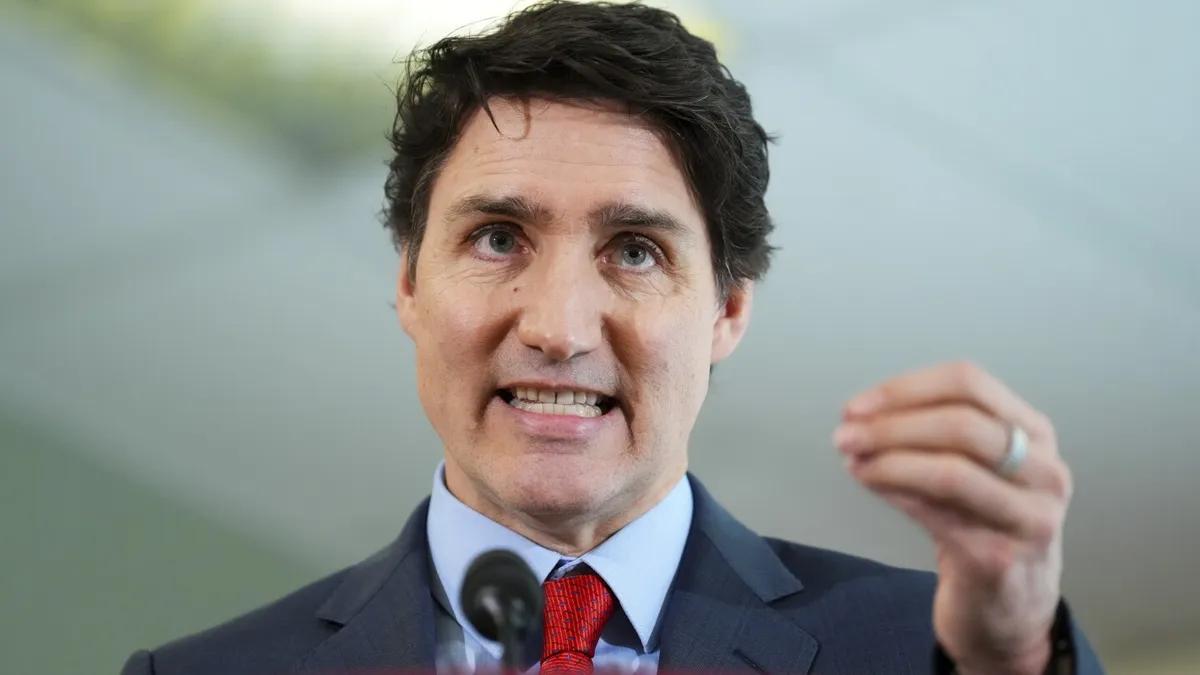
In a significant development concerning international trade, Canada has confirmed that its initial retaliatory tariffs against the United States will remain in effect, despite President Donald Trump announcing a one-month postponement of 25% tariffs on numerous imports from Canada. Two senior Canadian government officials, who spoke to the Associated Press on the condition of anonymity, indicated that Canada will not retract its initial wave of response tariffs.
The initial Canadian tariffs, amounting to $30 billion Canadian (approximately US$21 billion), target a variety of American products. This includes everyday items such as orange juice, peanut butter, coffee, as well as larger goods like appliances, footwear, cosmetics, motorcycles, and certain pulp and paper products.
In light of Trump's recent executive order, Canadian Finance Minister Dominic LeBlanc announced that the government has decided to suspend a second wave of retaliatory tariffs. Initially, Canada had planned to impose an additional $125 billion (around US$87 billion) in tariffs on various American products, including electric vehicles, fruits and vegetables, dairy, beef, pork, electronics, steel, and trucks.
On the provincial level, Doug Ford, the Premier of Ontario, announced that starting Monday, Ontario will impose a 25% increase on electricity charges for 1.5 million Americans. This decision is a direct response to Trump's tariff plans, as Ontario supplies electricity to states like Minnesota, New York, and Michigan. Ford emphasized that Ontario's tariff would remain intact, regardless of Trump’s temporary reprieve.
In alignment with Ford’s stance, other Canadian provinces are also taking measures against U.S. imports. British Columbia's Premier, David Eby, announced that legislation will be introduced soon, enabling the province to levy fees on commercial trucks traveling from the U.S. to Alaska. Eby expressed that Canadians will persist in their efforts until the tariffs are completely removed, criticizing Trump’s actions as sowing "uncertainty and chaos" within the economy.
Prime Minister Justin Trudeau shared his perspective on the ongoing trade tensions, stating his expectation for a trade war between Canada and the U.S. to continue for the foreseeable future. Following a heated conversation with Trump, where the U.S. President reportedly used profanity regarding Canada’s dairy protections, Trudeau maintained a diplomatic approach and refrained from using similar language.
Under Trump’s orders, imports from Mexico and Canada that comply with the 2020 USMCA trade pact will be exempt from the 25% tariffs for one month. However, a significant portion of imports—approximately 62% from Canada—will still be subject to these tariffs, as they do not meet USMCA compliance standards. This situation reflects the broader implications of the tariffs and the ongoing complexity of trade relations between the two neighboring countries.
Despite Trump’s rhetoric suggesting that the U.S. can thrive without Canada, it is noteworthy that nearly a quarter of the oil consumed daily in the U.S. originates from Canada. Furthermore, Canada is a crucial supplier of steel, aluminum, and uranium to the United States, emphasizing the interdependence between the two nations. Approximately $3.6 billion Canadian (around US$2.7 billion) worth of goods and services cross the border each day, highlighting the importance of maintaining stable trade relations.